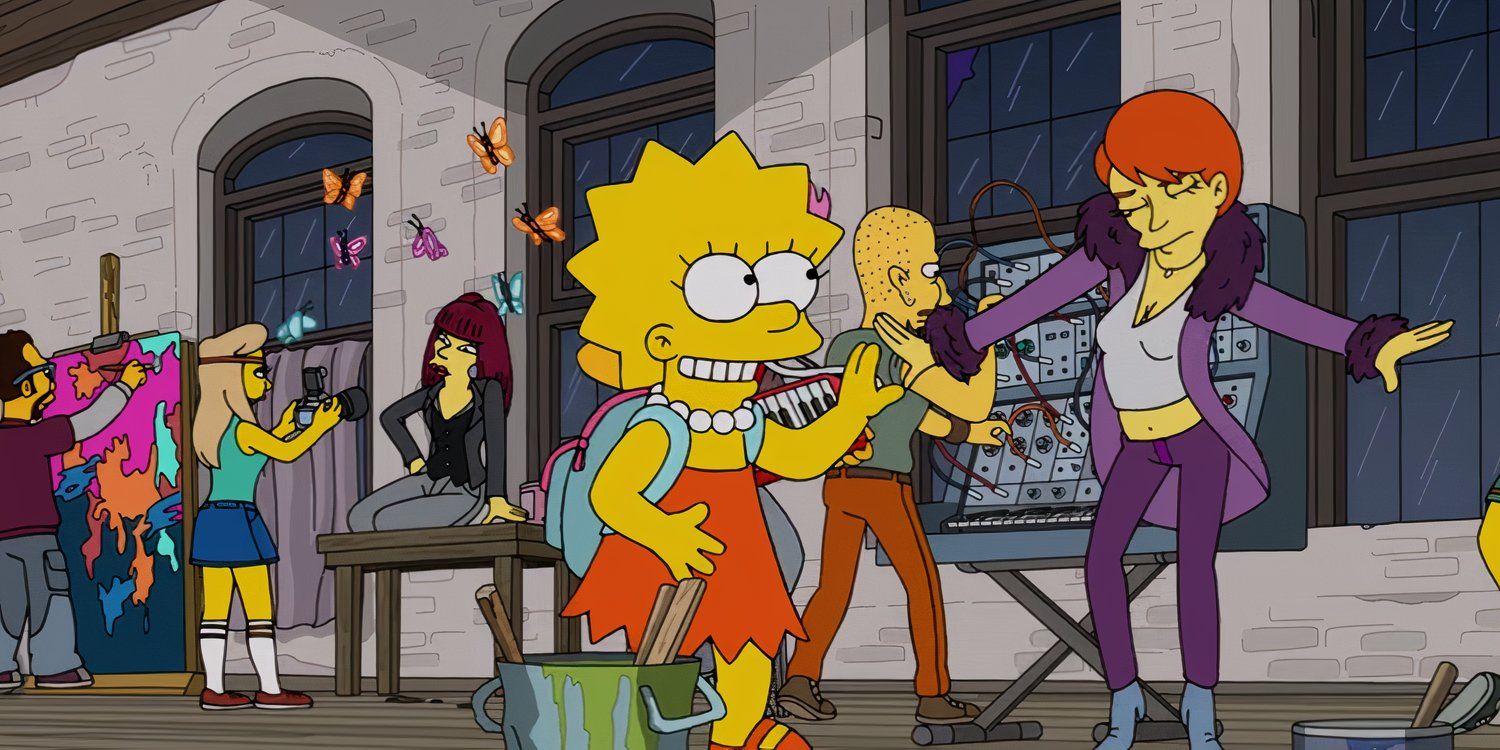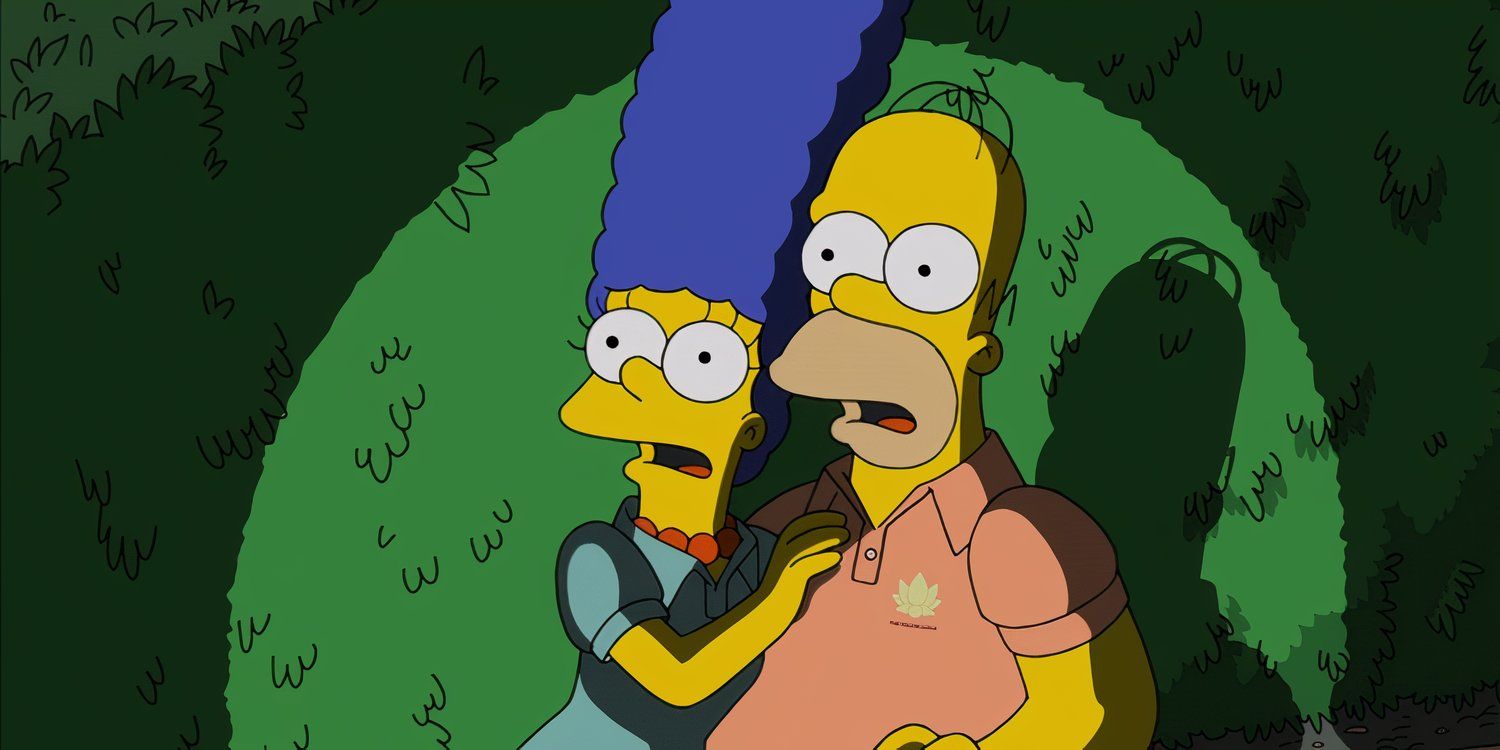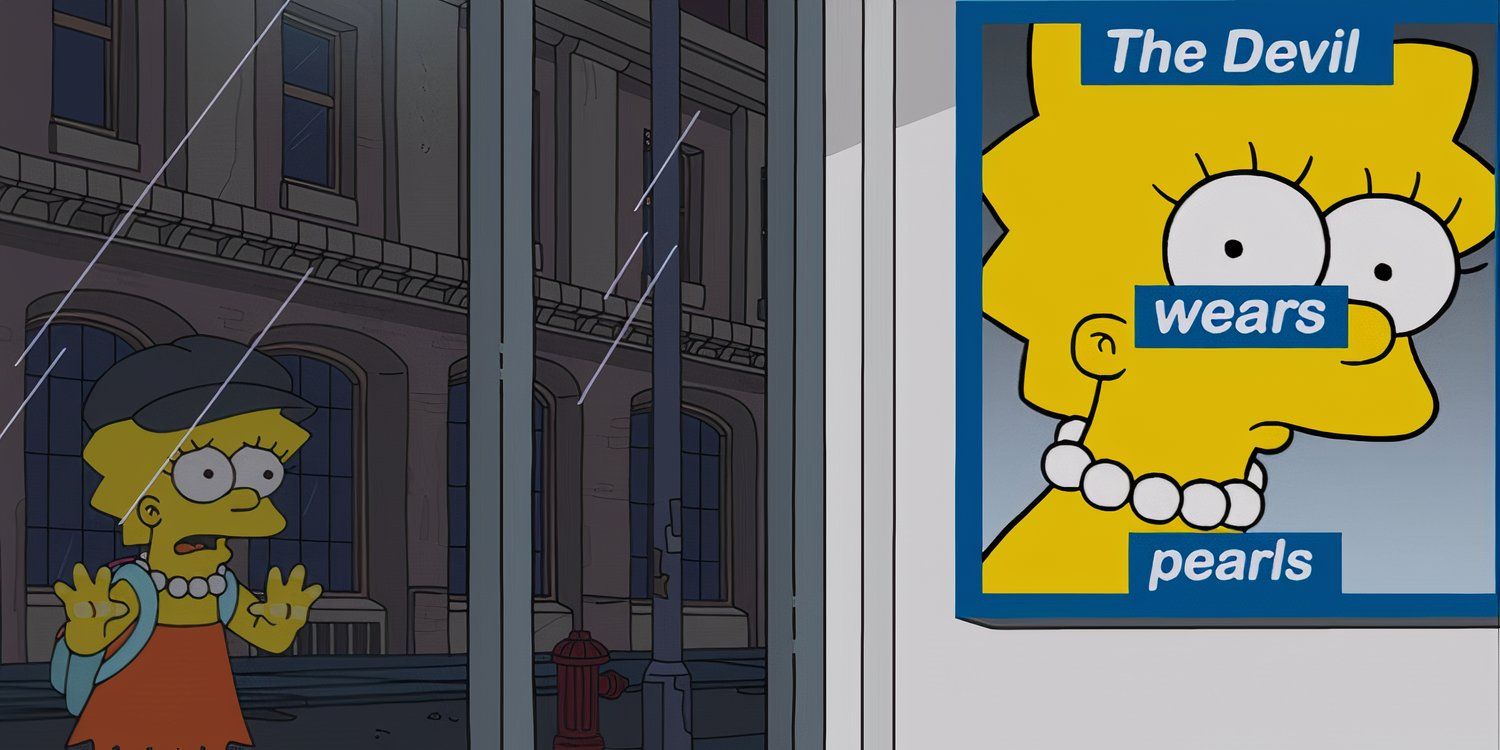The following contains spoilers for The Simpsons season 36 episode 3, "Desperately Seeking Lisa," now streaming on HuluThe Simpsons' season 36 just used one of Lisa's defining characteristics to call out an industry, highlighting an interesting contradiction that's always been a part of the show. Over the last thirty-six seasons, The Simpsons has evolved in some interesting ways, with characters like Moe, Ralph and Nelson having many differences between their original incarnation and their modern version. Despite this, the core titular family has remained largely consistent from a character perspective. Lisa is a great example of this, who has been shaped over time to reflect different decades' versions of a lonely but gifted girl.
This is especially true in season 36 of The Simpsons, with "Desperately Seeking Lisa" following the young girl as she becomes enamored with the art scene in Capital City. While Lisa's ambitions and love for art are never portrayed negatively, the episode makes many pointed jabs at the state of the business surrounding art, casting their main figures as thieves and mobs. It's a unique dichotomy that's always existed within the show's approach to the world of art, and speaks to a core theme of the never-aging Simpsons' stories that's been around since the early days of the show.
The Simpsons Season 36 Refutes Lisa's Dreams Of Being An Artist
Lisa's Love Of Art Keeps Her Pure Despite The Art World's Flaws & Faults

The Simpsons season 36 highlights the problems with Lisa wanting to join the art world, even if it never actively condemns the actual act of creating art. "Desperately Seeking Lisa" is a largely Lisa-centric affair, with the young girl going through the trendy art scene of nearby Capital City. Although she's initially enamored with the potential and creativity of the landscape, she soon discovers that the art scene is full of con-men and thieves. While Lisa may have ambitions to escape Springfield, she spends the episode discovering that the urbane art-scene is a fraught space full of con-men.

Related
The Simpsons Season 36 Quietly Resolved A Tragic Subplot That's Been In The Show For 27 Years
The Simpsons' parody of The White Lotus took a minor subplot of the series and revealed the full dramatic nature of two enduring minor characters.
"Desperately Seeking Lisa" makes the case that being an artist may be fulfilling and exciting, but it's also nigh-impossible to achieve the success needed to survive off it. On top of that, the artists are all shown to be quick to judgment and even quicker to anger, with only a single empathic artist sparing Lisa and helping her escape back to Springfield. Even highly regarded artists and playwrights are in on the take, suggesting an industry wide concern that The Simpsons has always been happy to make fun of.
The Simpsons Loves Lisa The Artist, But Always Mocks The Art World
The Simpsons Has Mocked The World Of Art Long Before Season 36
This may seem like an inherent contradiction, as The Simpsons uses Lisa's art as a way to give the often put-upon little girl an outlet that she is respected for. Her entire love affair with music stems from season 1's "Moaning Lisa," where she discovered it as an outlet for her sadness. However, her saxophone skills are often shown to be recognized and celebrated in Springfield. The Simpsons paints Lisa's genuine love for art and expressionism as a value, a good trait that separates her from the more mundane and often cruel forms of entertainment found across Springfield.
This is a far cry from the show's approach to the art industry itself, which it has satirized before. In season 2's "Brush with Greatness," season 10's "Mom and Pop Art" and season 23's "Exit Through the Kwik-E-Mart," the show saw Marge, Homer and Bart find outlets for their feelings through classic, abstract and street art. In each case, the art industry was the butt of the joke, filled with opportunistic dealers and wannabee cool people. The Simpsons respects art as an outlet and loves artists, but doesn't care for the industry that profits off them.
How The Simpsons Subverts Its Own Artistic Inspirations
Love The Artist, Hate The Art World

The natural contradiction in lionizing the effect of art while calling out the world of high art speaks to The Simpsons' trademark sardonic approach to modern society. The show has always found clever ways to reference poetry, art and music, often in different and surprising ways. This indicates that the rotating roster of creatives behind The Simpsons have a deep appreciation for art. However, the show has never been necessarily kind to artists themselves, outside of characters like Lisa. She admires artists and specific pieces, but ends "Desperately Seeking Lisa" saying she hates Capital City and what it represents.
It's far from the only time The Simpsons made this point, but season 36 proves its still a relevant one...
The Simpsons isn't afraid to reference its inspirations, but it's also unafraid to call them out. It's another example of The Simpsons' overt political themes, wherein the individual is to be commended while the industry that uses them is to be condemned. It's far from the only time The Simpsons made this point, but season 36 proves its still a relevant one, especially with a character like Lisa who is so defined personally by their love of art. The Simpsons loves Lisa for this artistic side, even as it mocks the world she'd want to join as a result.

The Simpsons is a long-running animated TV series created by Matt Groening that satirically follows a working-class family in the misfit city of Springfield. Homer, a bit of a schmoe who works at a nuclear power plant, is the provider for his family, while his wife, Marge, tries to keep sanity and reason in the house to the best of her ability. Bart is a born troublemaker, and Lisa is his super-intelligent sister who finds herself surrounded by people who can't understand her. Finally, Maggie is the mysterious baby who acts as a deus ex machina when the series calls for it. The show puts the family in several wild situations while constantly tackling socio-political and pop-culture topics set within their world, providing an often sharp critique of the subjects covered in each episode. This series first premiered in 1989 and has been a staple of Fox's programming schedule ever since!
Release Date December 17, 1989
Seasons 35
Network FOX
Franchise(s) The Simpsons




:quality(85):upscale()/2024/10/29/625/n/1922564/ec222ac66720ea653c5af3.84880814_.jpg)
:quality(85):upscale()/2024/10/25/846/n/49351082/bfc0fdb3671bef086c3703.42134063_.jpg)
:quality(85):upscale()/2021/07/06/971/n/1922153/7d765d9b60e4d6de38e888.19462749_.png)

:quality(85):upscale()/2024/10/29/957/n/1922441/c62aba6367215ab0493352.74567072_.jpg)
 English (US) ·
English (US) ·